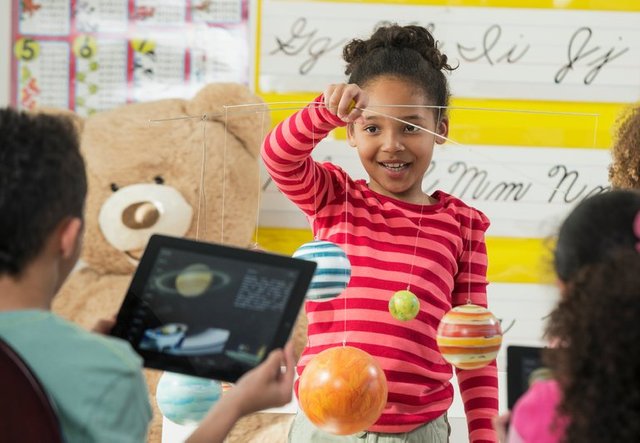Why Young Girls Don’t Think They Are Smart Enough

By the age of 6, young girls are less likely than boys to view their own gender as brilliant.
In our research, published today in the journal Science, we’ve found that girls as young as 6 start to believe that specific activities are “not for them” simply because they think they’re not smart enough. Our research suggests that American children are picking up on cultural stereotypes about brilliance at an early age. Unfortunately, these stereotypes suggest that girls aren’t as smart as boys.
If you try to think of a character in a book or show who is brilliant, you may come up with someone like Sherlock Holmes, Mr. Spock, Sheldon Cooper from “The Big Bang Theory” – or some other man. Of course, there are exceptions, such as Hermione Granger in the Harry Potter series and Lisa Simpson in “The Simpsons.” Most often, though, our cultural stereotypes promote the idea that being intellectually gifted is a male quality.
Even if parents do not explicitly endorse this stereotype, evidence suggests that it affects their hopes for their children. A 2014 report found that American parents Googled “Is my son a genius?” more than twice as often as they Googled “Is my daughter a genius?”
In contrast, questions about physical appearance were relatively more common for girls: Parents Googled “Is my daughter overweight?” about 70 percent more often than “Is my son overweight?”
As it happens, boys are slightly more likely to be overweight than girls. And, even though teachers – like parents – tend to assume that boys have greater “natural ability,” in reality girls do better in school.
Continue reading the main story
Advertisement
Continue reading the main story
Do little girls pick up on what their parents and teachers think about their smarts?
In our most recent research, with the psychologist Lin Bian as lead author, we studied 400 children ages 5 to 7, recruited over the last several years from a middle-class community near the University of Illinois, where one of us was working at the time.
For one study, each of 96 children (half boys, half girls) was told two stories about a person whose gender was not specified. They were told that one was about a “really, really smart” person, and the other was about a “really, really nice” person. Next, the children were shown four pictures (two males and two females) and were asked to guess which one might be the person in the story.
At age 5, boys and girls were equally likely to associate intelligence with their own gender, but that changed quickly. At age 6, girls were significantly less likely to associate brilliance with their own gender. Many of them picked a male character to identify as the really smart person in the story, much as the boys did.
These stereotyped responses were given by both white and nonwhite children, and did not seem to vary as a function of parental education and income.